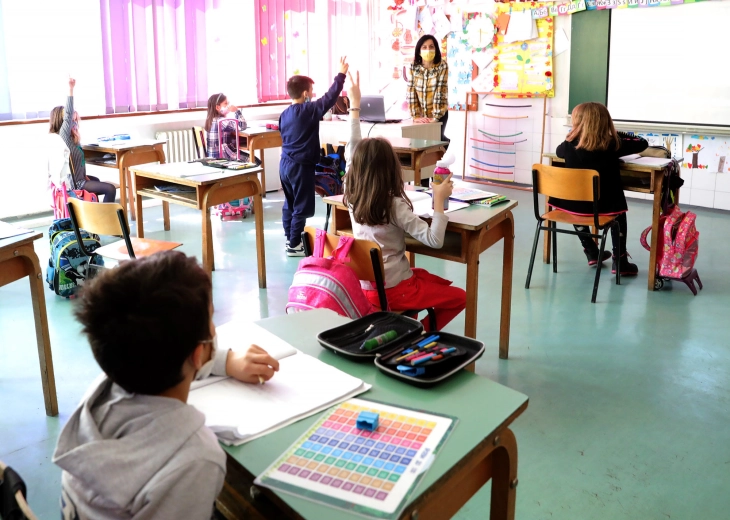UNICEF welcomes decision to reopen schools in September

Skopje, 19 August 2021 (MIA) - UNICEF welcomes the Government decision to reopen schools for all children in September, UNICEF Representative Patrizia DiGiovanni said in a media statement on Thursday.
She noted that with appropriate enhanced prevention measures in schools and timely detection, isolation of cases and their contacts, the risk of COVID-19 transmission in schools is manageable.
“We recognise that decisions to reopen schools are considered in the context of the COVID-19 epidemiological situation and our evolving understanding of the risks posed by the new virus variants, however schools must always be the last to close and first to reopen when it is safe to do so. With the uncertainties in the early onset of the pandemic, the shift to distance learning was a needed measure, however it was always intended to be short term and never replace in-person learning. Governments around the world have too often kept schools closed for in-person learning for prolonged periods. School closures were frequently taken as a first recourse rather than a last measure. In many cases, schools were closed while bars and restaurants remained open,” DiGiovanni underlined.
According to her, the government’s decision is especially encouraging since North Macedonia has recorded the longest school closure for in person learning, with the majority of students attending distance learning for a total of 54 weeks, a number significantly higher than the Europe and Central Asia region average of 25 weeks.
She added that from research with school management, teachers and parents in North Macedonia we know that while distance education helped to keep children learning, more than half of all teachers saw an increase in the number of students who struggled or failed to acquire what they were being taught due to distance learning. Moreover, a majority of teachers report that at one point during distance learning they could not contact some of their students.
“Furthermore, before the COVID-19 pandemic, North Macedonia was already facing a learning crisis. While the country showed promising improvements during the last PISA results, still more than half of all fifteen-year-olds in the country were failing to meet basic proficiency levels in reading and maths. Any continued disruptions in education may reverse these gains,” the UNICEF Representative stressed.
According to DiGiovanni, schools which opened in the 2020/2021 school year have proven that they do have the capacity to follow COVID19 safety protocols.
“That’s why the community should support the safe reopening of schools and if the situation evolves, school closures should only be considered as a last resort when there are no other alternatives. Reopening and keeping schools open requires a collective effort to ensure they remain a safe environment for learning. Now more than ever schools need the resources and capacities to rebuild what has been lost in learning and mental wellbeing. We need to make education a priority and build national solidarity around key reforms so that every child is in school and learning,” said UNICEF’s DiGiovanni.







